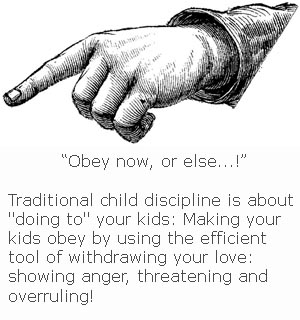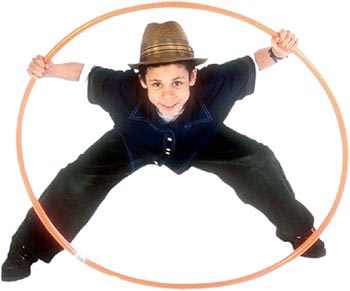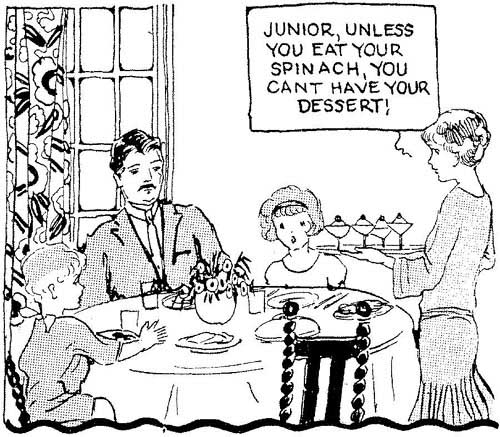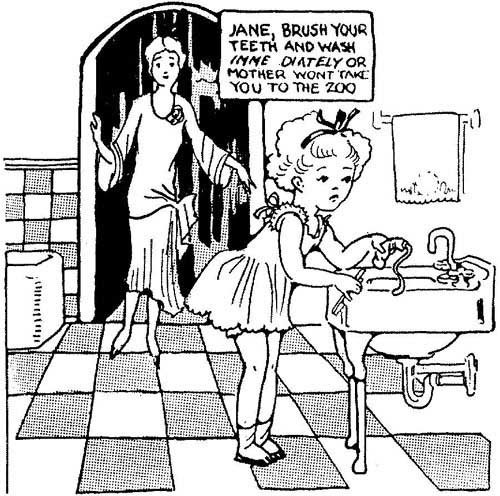
Unconditional Parenting: A Radical Practice of Loving Unconditionally and Really Meeting Your Kid's Needs!
Loving our kids unconditionally is not necessarily the same as doing unconditional parenting!
In this parenting article you will, among other things:
• Get a definition of unconditional parenting that will make it clear that it's all about meeting your kids' needs unconditionally!
• Get practical tools to help you meet those important needs: for instance, you will get tips on how to actively question your own child discipline ideas when what you do doesn't seem to work!
• Get some practical parenting examples that clearly mark the difference between unconditional and conditional parenting!
What Is Unconditional Parenting?
Parenting unconditionally does not start with your kids or their behavior.No, unconditional parenting starts with you, the parent!
Unconditional parenting starts with you making a conscious decision about the way you want to relate to your children.
It starts with you deciding to show unconditional love and support for your kids no matter how they behave and regardless of what they say.
That is unconditional parenting: Accepting your kids 100% - unconditionally - no matter what!
To borrow a term from humanist therapy, parenting unconditionally is looking at your kids with an unconditional positive regard:
You accept your kids as the persons they are, not for what they do, their achievements!
When You Parent Unconditionally You Are a Solid Pillar of Love and Support ... Regardless of Your Child's Behavior!

Now, having read last section's definition of unconditional parenting most parents would probably say:
- "Yes, I do unconditional parenting because of course I love my kids unconditionally!"
However, there might be a gap between thinking that you accept your kids unconditionally and actually showing your kids this unconditional acceptance.
Practicing unconditional parenting means that even when your kids are screwing up, throwing tantrums, or just being downright annoying to put it in plain terms, you do not ignore them, scold them or 'discipline' them in the old fashioned sense of the word - you keep your calm and still show them that you love them.
You treat your child with an unconditional positive regard.
Don't Worry!
- You Cannot Spoil Your Kids or Ruin Their Sense of Reality by Showing Them Unconditional Love!

Now, "100 % acceptance of your kid regardless of everything" is a stance that is extremely provocative for many parents because they think:
- "How can kids learn to behave if they are not taught what is right and what is wrong?"
In other less diplomatic words:
- "How can kids grow into responsible people if they are not punished for their mistakes and rewarded for their accomplishments?"
That is a good question!
One good answer here is:
- Children will learn the consequences of their actions even if they don't get punished or rewarded by you.
For instance, if your kid has just broken his new expensive toy in frustration, he or she will - with or without your unconditional support - know that the toy is broken and cannot be played with in the same manner any more.
The unfortunate consequences are clear in any case!
The difference is that with unconditional love, you heal the frustration or meet the need behind the throwing of the toy more effectively. (This explicit focus on needs is also central in what may be called positive parenting and attachment parenting).
Your kid's need could be, "Mom or Dad, I want your attention and I want to be held." Or it could be even more basic, "Mom or Dad, I'm hungry and tired and need to eat and sleep".
Fulfilling this need rather than punishing your kid for the 'annoying' expression of the need is much more rewarding for the both of you!
Now, this was just one aspect of parenting unconditionally, sit tight because much more is on its way!
3 Guidelines in Unconditional Parenting
The author, Alfie Kohn has written an interesting parenting book called "Unconditional Parenting".In this book Alfie Kohn encourages us to reconsider our typical parenting discipline style that usually consists of various strategies of trying to control our children.
Some of Alfie Kohn's main points are:
1. Show Your Affection Unconditionally Rather than Conditionally
Don't measure your kids in terms of their accomplishments and failures because they might come to live under the impression that they have to earn your love.
They might come to think that, "Love and affection is only given to me when I am a success - when I do what my parents think is right!"
This means that, in order to get your attention your kids will do ultimately anything to please you, including perhaps even trying to change their natural character to become someone who they think you might appreciate.
2. Use Unconditional Support Rather than Conditional Praise
According to Alfie Kohn both threats and praise are parenting techniques used to try to control our children.
We might think that praise is an expression of love but Alfie Kohn would say that praise is really an instrument of control in the sense that we teach our children that: "If you do what I say, I will show you love".
And the other way around: "If you disobey me, I will withdraw my affection!" (meaning become angry or simply ignore you).
Unconditional support is not award related. Unconditional support is a constant which provides basic security for your child.
Your child's secure attachment to you is a condition that attachment research has proven crucial in healthy child development.
3. "Work with" Your Kids Rather than "Do to" Your Kids

This point is really interesting and I just love the way Alfie Kohn has coined terms "working with" and "doing to". It really sums up two very different ways of dealing with your child!
Just like Alfie Kohn, I really encourage you to "work with" your kid, "work with" the need.
It is much more satisfactory and also much easier because rather than 'blocking' your kid's energy, you 'go with' it!
It's about finding out what the need is and "work with" it - fulfill it - rather than just squashing it because the expression of the need (crying, seeking your attention etc.) is demanding on you.
When you impose your own ideas of what you have been told is right onto your kid (for instance, you speaking harshly, thinking your kid needs to learn to sit quietly at table through an entire meal), you "do to" your kid.
You try to control your kid by withdrawing your positive affection and thereby indirectly forcing your kid to live up to your ideas.
So unconditional parenting is about sensing what it is your kid really needs and giving it to your kid - but it also is about not compromising yourself.
I can see why it may be easy to think that parenting unconditionally is a complete self sacrifice.
It is not!
It's about making everything work at its best!
I've written a positive parenting article on exactly this topic.
Alfie Kohn:
- Traditional Child Discipline Teaches Our Children to "Jump Through Hoops for Us to Love Them!"

The following Alfie Kohn quotations about unconditional parenting are borrowed from an interview with Alfie Kohn. (Unfortunately, since I wrote this article, Alfie Kohn's site has changed, and I can't find the interview there anymore and thus not provide you with a link to it. Sorry about that!)
I have chosen to present these quotes in this parenting article because I think his words really capture the essence of traditional - and sorry to say so - old fashioned child discipline techniques.
Now, leaving the scene to Alfie Kohn:
- "Most parenting books and articles are filled with techniques designed to produce mindless obedience in children. But the authors very rarely ask parents to rethink their basic assumptions, or to consider how these techniques for changing behavior – you know, for getting kids to stop being rude or start using the potty, or whatever – might actually get in the way of our long-term goals, like wanting our children to grow into responsible, caring, happy people."
- "Neither threats nor bribes work very well, you know, especially over the long haul. At best, they produce only temporary obedience. And in the process they do a lot of harm -- for example, by teaching children that they have to jump through hoops for us to love them."
- "What I’m trying to do in Unconditional Parenting is help these folks understand that those techniques, which are indeed the staples of conventional discipline, are actually part of the problem! The trouble isn’t with your kids; it’s with what you’ve been talked into doing to your kids."
Positive Parenting Ally's Tips
- Actively Question Your Own Child Discipline
Ideas

Conventional norms, rules and guidelines about child discipline and 'getting children to behave' are very powerful and unless we're really conscious about them, we tend to just go on old fashioned parenting autopilot.
We tend to do what we've been talked into or raised with ourselves, namely: Controlling and forcing our kids to make them do what we want in order to make our own lives easier ASAP.
However, deep down we all know it: Controlling children doesn't really feel that good.
So is it really the right way to go?
To start you off, you may begin by answering these questions:
Do you often feel in doubt as to:
- Whether you are unnecessarily forcing your ideas onto your child?
- Whether what you've been told is really the right way of disciplining your children?
If you answer yes, I can guarantee you that you are not alone with these doubts.
I personally have them all the time.
Typically the situation is: we want our children to do something, and surprise, they don't want to!
So what do we do?
Well, what I do is: I first question my ideas!
When I'm in doubt as to whether what I want is actually a good thing, I sometimes go through a small self-to-self-interview in order to clarify myself!
So, the first question is:
- Does my idea of what I want make complete sense?
Again, the background here is: I want my child to do something but my child strongly resists!
So I ask myself: For instance, is it really necessary that my child start potty training now, does my child really need to eat his food at this very point, does my child really need to stop drinking milk from the bottle if he still so thoroughly enjoys it and so on and so forth.
Typically we have been unconsciously force-fed the answer to these questions and these answers tend to rigidly rule us if we are not very aware of them.
Norms are ridiculously powerful!
They're like an invisible horse rider sitting firmly on our back dictating our pace and way to go!
And for the most part: We don't even realize it!
So returning to the above question, the answer is most likely no!
If your ideas do not do something good for your child but instead go against what it is your child really needs (security, respect, comfort, space to make his / her own decisions etc.), you can typically safely abandon these ideas.
This is the cue for my next question:
- Is my idea of what I want a general norm or is it focused on my child's needs?
When we want our idea 'to happen', we need to ask our selves: Is it because it is a general norm (We think it's the 'correct' and 'proper' way to do things?)
Or is it because we really know what is best for our kid: what our kid really needs?
For instance, old fashioned child discipline dictates that a child must be 'taught' to be independent.
Parents practicing this kind of child discipline may think that independence is a skill that comes from toughening up their kids by stripping them of their sense of security:
For instance, they might think that if they didn't force their child to fall asleep all alone, their child wouldn't be unable to sleep by himself or herself later in life.
So rather than giving their child unconditional security, which might be what their child really needs, they would - with the best of intentions - follow the norm and force their unhappy child to fall asleep all alone in a dark room.
Possible results: In the parents' efforts to 'teach' their kid to be independent, they get a child who will hate go to bed simply because it makes him or her unhappy and give rise to uncomfortable feelings of insecurity.
Okay, you may ask: How do I know when I'm dealing with a norm or a need?
Good question!
This leads up to my next question ...
- When you decide what to do, are you centered in your mind (blindly following rules and preconceived ideas) or are you centered in your gut (sensing what it is your child really needs).
When you make your decisions, try to see if you can sense where the idea comes from.
Do you sense it coming from your kid in terms of your kid needing something?
Or do you sense a form of 'rigidness' to it in terms of frustration - "it just has to be this way!" - and feeling tempted to just force your idea through?
If you sense it coming from your kid, it's most likely because you have 'tuned in', 'bonded' and 'read' your child.
Congratulations, you've probably sensed a need.
Go for it, listen to your gut feeling and do what you can to fulfill that need.
If you feel like 'doing to' your child, it's probably your mind trying to make you follow preconceived ideas.
It most likely doesn't have anything to with your child as such but with your own ideas (which you have been 'generously' given by well-meaning friends, your parents and society).
These ideas tend to focus on trying to control your child by 'doing to' (typically overruling but also bribing).
Practical Examples of Conditional Parenting: "Doing to" Your Child
When you are in your mind, you tend to follow ideas that other people have laid out.When you apply force (a harsh voice, threats or bribes) you apply techniques to control your kid. Or as Alfie Kohn would say, "do to your child".
Here are some conditional parenting examples of 'doing to' your child:
- Telling your kid to eat up everything on his or her plate or there's no dessert! (a threat cleverly disguised as a bribe)
- Telling your kid that he or she needs to taste everything served or there's no leaving the table! (Once again, a threat / bribe)
- Physically force potty training through or bribing with treats because you've heard that now is the time! (a 'doing to' your kid)
- Leaving your child to fall asleep crying because you've been told that that is the right way to 'force' autonomy and independence through (another 'doing to' your kid).
- Becoming angry, judgmental or making it into a drama when your child tells you about a failure or something 'bad' that he or she has done! (focusing on your kid's
behavior)
Here are some family sketch drawings that illustrate the typical threat / bribe situations.


You see how the parents cleverly control their kids by using threats neatly weaved into bribes?
Practical Examples of Parenting Unconditionally
- How to "Work With" Your Child
When you are in your gut, use your instincts, tune in to your child, it is much easier to "work with" your child and sense what it is your child needs.
Let's stay with the above conditional parenting examples and see if we can't turn them around into unconditional parenting examples of 'working with' your child:
Example no. 1
- About Your Kid's Eating Habits:
Trust your kid. If your kid doesn't feel like eating, respect it.
Let your kid decide whether he or she is full or not.
This is in fact about you letting go and letting your kid take on responsibility: Making space for your kid to learn to trust his or her own body.
Seriously reconsider if you want to confuse the getting-to-know-your-body by introducing the concept of dessert!
Example no. 2
- Be Conscious of the Food You Present:
Make sure that everything you put on the table is something you can vouch for (something that is healthy) so that your kid can decide to eat whatever he or she wants!
For instance, I make vegetable sauces (really quick to do: boil veggies, blend them and ad cream, perhaps some spices) and I can then safely let go of what he eats: I can let him eat the sauce as soup if that is what he feels like that particular evening.
Result: I feel good because he has had a healthy meal and he feels good because he could choose what he felt like eating at that particular point in time.
This is about arranging the circumstances so that you can support your child's need to decide and make choices.
Example no. 3
- Potty Training Is also about YOUR Readiness!
Potty training is actually more about you than your child. Make sure that YOU are 100% ready to potty train.
Besides looking for your kid's signs that he or she is ready (e.g. your kid commenting on having a 'full' diaper, finding the potty or toilet interesting etc.) it is really a good idea to verify with yourself that YOU are ready to accept your child no matter how he or she does in potty training.
This is about letting go of expectations and meeting whatever comes with unconditional support ... even if your child makes a poo in the middle of the floor.
Example no. 4
- Consider Seriously How You Want Your Child to Experience Sleeping Time!
If your child feels insecure about falling asleep alone or has difficulties calming down by himself or herself, fulfill the need for support.
Don't make falling asleep an unhappy experience associated with being insecure and alone.
Seriously consider staying with your child if this makes him or her more secure. Don't make him or her hate going to bed.
I can tell you, it's a real bugger later in life!
I know so many people who won't go to bed even if they are totally exhausted because going to bed is unconsciously associated with something negative: being all alone with yourself and /or excluded from company.
Example no. 5
- Want Your Child's Confidence? Stop Judging!
If you want your child to be able to confide in you, it's a really good idea to remain open, supportive and constructive when your kid tells you about something he or she has done - even if you don't approve of it.
Why?
Because if your child has a negative experience confiding in you, the likelihood of him or her letting you in another time is considerably reduced.
It's logical: "It feels bad telling, so I won't do it again!"
Whereas if you show unconditional support and acceptance of your child, your child will feel empowered and want to seek your help and advice next time.
Your Positive Parenting Ally,
Birgitte

Want to stay in touch and get the latest news?
Sign up
for my free newsletter
Parent Coaching
- For Inner Peace, Clarity and a Deeper Connection to Your Child
 Being a parent can feel like a double-edged sword. Life with kids may feel like the greatest gift you have ever received, while at the same being hugely challenging, often leaving you confused, stressed and overwhelmed.
Being a parent can feel like a double-edged sword. Life with kids may feel like the greatest gift you have ever received, while at the same being hugely challenging, often leaving you confused, stressed and overwhelmed.
When we feel like this, we've lost touch with ourselves. We can't hear our own inner voice, and it's difficult to know what is 'right' for us and how to act.
I offer in-depth parent coaching to help you regain your balance and get back in touch with yourself. From a place of inner peace and clarity, your will find your own answers which will help you reconnect with your child from a place of unconditional love and acceptance.
Read more about my parent coaching here.
Where Would You Like to Go Next?
 The Unconditional Positive Regard: The Long Term Parenting Strategy That Allows for Full Growth! |
 Positive Reinforcement Parenting: A Well Meaning Parenting Technique That Lacks the Long Term Focus! |
 Alfie Kohn Biography, Theories and Books: The Father of Unconditional Parenting. |
 Carl Rogers Biography, Theories and Books: The Founder of Humanistic Psychology. |
Back to the top of this page about Unconditional Parenting: A Radical Practice of Loving Unconditionally and Really Meeting Your Kid's Needs!
Go to the Positive Parenting Ally Homepage







